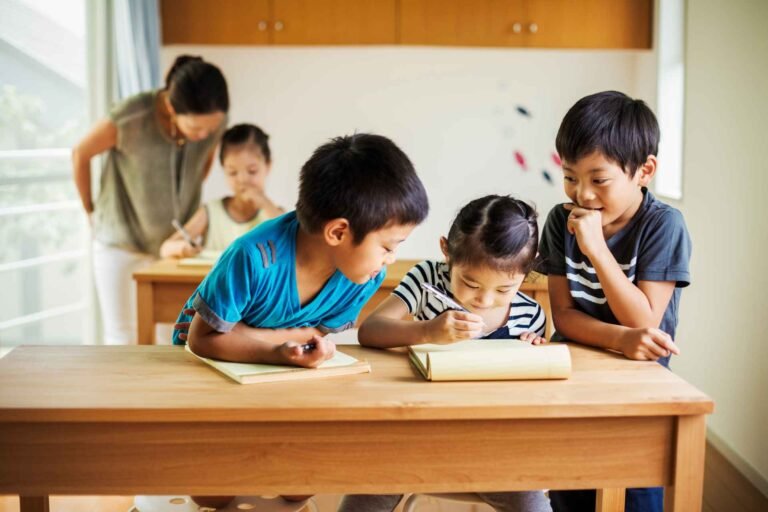Home » The Sycamore Center for Progressive Education Curriculum » Grade 6 Curriculum: Philippine History
Grade 6 Curriculum: Philippine History
Explore the geography, history, and culture of the Philippines from pre-colonial times to the Fifth Republic.
Major Subjects: Bible, History, English, Filipino, Science, Math
Minor Subjects: Music and Art, Health, Physical Education, Technology and Livelihood Education


CORE SUBJECT
Bible 06
Bible 06 reviews the students of Biblical characters from the Old and New Testaments. The course aims to inculcate the moral lessons from each Biblical character into each Sycamore student’s lives.
Learning Outcomes:
By the end of the school year, the students’ familiarity with the characters of the Bible, teachings of Jesus, and their ability to apply these lessons in their lives should be well-established.
More specifically, learners are expected to exhibit cognitive, affective, and kinesthetic competencies as manifested in the following outcomes:
- Explore the Christian beliefs of notable figures, places, and events in the Bible by delving into a range of biblical tales shown in multiple media forms.
- Understand God's love for people as depicted in different Bible stories to cultivate a deep sense of self and identity in Him.
- Apply ethical lessons from various Bible stories to everyday life through tangible examples, conversations, and diverse activities.
- Acknowledge the importance of the biblical stories discussed in class for establishing strong foundations of Christian faith.
Student References / Workbooks
- The Holy Bible
CORE SUBJECT
History and Geography 06
Philippine History ang Geography
Lessons in this course will be covered through various synchronous and asynchronous, online distance and in-person classroom activities that are aimed to create an immersive, engaging, relevant, and collaborative learning experience.
Learning Outcomes:
More specifically, learners are expected to exhibit cognitive, affective, and kinesthetic competencies as manifested in the following outcomes:
- Recall and describe important historical events across different time periods, and explain the relevance of these events to present times
- Analyze major events, conflicts, and disagreements and able to form their own opinions through fact-finding and inferences
- Propose solutions to past and current issues or problems that the country is facing based on a broader and deeper understanding of Philippine culture, society, and geography
- Develop empathy, respect and a deeper sense of awareness and appreciation of their indigenous pre-colonial roots and diverse Philippine identity
- Display a sense of pride and respect in their national identity by valuing one's historical and cultural heritage, and various environments (physical, biological, natural, and social).
- Demonstrate a desire to exercise one's rights and responsibilities as a citizen of the country based on their knowledge and understanding of various current issues and events happening in the country.
- Discern the difference between facts and false information by assessing the reliability of historical data, and current news articles.
Student References / Workbooks
- Ariston, Ma. Angelica V., et al. (2013). Our Beloved Country: A History of the Philippines. Anvil Publishing Inc.
- Boncan, Celestina P., et al. (2010) Philippine Civilization: History and Government. Vibal Publishing House Inc.
LANGUAGE SUBJECT
English Language Arts and Literacy 06
Reading and Writing in English for Filipino Students
This course covers Filipino-authored young-adult fiction, and various reading and writing skills essential for the Filipino student.
Learning Outcomes:
At the end of the school year, a student must be able to develop strategies for comprehension and communication in English, that are most suited to oneself as a Filipino student in the 21st century.
More specifically, learners are expected to exhibit cognitive, affective, and kinesthetic competencies as manifested in the following outcomes:
- Develop comprehension skills by utilizing reading strategies effectively for both literary and informational texts.
- Demonstrate appreciation of Filipino culture and help establish cultural identity through discussion of Filipino literature.
- Show consistent use of proper writing mechanics and adherence to writing conventions for effective communication.
Student References / Workbooks
- Tall Story by Candy Gourlay
- Shine by Candy Gourlay
- Bone Talk by Candy Gourlay
LANGUAGE SUBJECT
Filipino 06
Panitikan at Wikang Pilipino
Learning Outcomes:
- Nakikilala ang iba't ibang bahagi ng pananalita upang makapagsulat ng wasto, epektibo, at makabuluhang pangungusap at komposisyon.
- Naipamamalas ang paggalang at pagmamalaki sa sariling wika at kultura sa pamamagitan ng paggamit ng wikang Filipino sa pang-araw-araw na pakikipag-usap.
- Naipamamalas ang mga natamong kaalaman at kakayahan sa paglinang ng pangangailangang pangkomunikatibo sa pamamagitan ng epektibong pakikipagkapwa.
- Naipaliliwanag ang aral na natutunan mula sa mga akdang ibinahagi, binasa, o napakinggan upang malinang ang pakikipagtalastasan sa pamamagitan ng diskusyon o talakayan.
- Naisasakatuparan ang mga magagandang aral na natutunan mula sa mga akdang binasa, ibinahagi, o napakinggan upang maging mas mabuting mamamayan.
- Mabigyan ng pagkakataon na mabalikan ang kanilang natutunan sa nagdaang mga aralin upang maiugnay sa kasalukuyan aralin at panahon.
Student References / Workbooks
- Owl Friends ni Carla M. Pacis
- Supremo ni Xi Zuq
- Enrique El Negro ni Carla M. Pacis
- O.C.W. A Young Boy’s Search for His Mother ni Carla M. Pacis
STEM SUBJECT
Science 06
General Science
Learning Outcomes:
- Explain the process of how scientific discoveries are achieved to appreciate the value of the scientific method through the presentation of scientific problems.
- Demonstrate appreciation for the scientific process through games and simulations.
- Formulate scientific points of view to develop critical thinking skills through the evaluation and interpretation of different forms of data.
- Listen and find value in different scientific points of view to develop a sense of empathy through informal debates and class discussions.
- Design experiments, following the scientific method to practice its applications through scientific inquiry and observation.
Student References / Workbooks
- List books that students are required to get copies of, and/or books provided by teacher
- No need to include teacher-only references
STEM SUBJECT
Mathematics 06
Mathematics 6
This course has five content areas in the curriculum: Number Sense, Measurement, Geometry, Patterns and Algebra, and Statistics and Probability.
- Divisibility
- Order of operations
- Fractions and Decimals including money
- Ratio and proportion
- Percent
- Integers
- Plane and solid figures
- Sequence
- Expressions
- Equations
- Rate
- Speed
- Area
- Surface area
- Volume
- Meter reading
- Tables
- Pie graph
- Experimental and theoretical probability
Learning Outcomes:
- Apply knowledge of the the five content areas in mathematical problems and real-life situations.
- Construct and describe the different solid figures.
- Interpret and represent data.
- Demonstrate the importance and value of mathematics as a means of communicating and solving problems in daily life.
- Develop positive values such as resilience and perseverance by incorporating them in discussions and word problems.
- Create a project that will showcase the student's learning experience by expressing it through their inclinations or passions.
Student References / Workbooks
- Math 7 A Teaching Textbook by Greg and Shawn Sabouri

